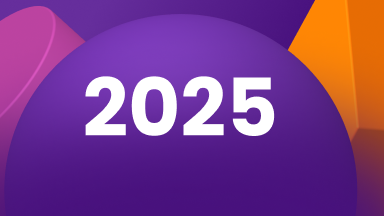World Backup Day 2025
Backing up your data is often one of those tasks that people overlook. While they understand its importance, they may not fully grasp the severe consequences of neglecting it.
It’s like brushing and flossing your teeth to prevent cavities or exercising to maintain good health—but with much more at stake (millions more). Neglecting to back up your data can result in devastating repercussions.
According to TRUELIST, as many as 94% of companies that suffer a major data loss do not recover. 51% of companies that experience a data loss close within two years of the incident, and 43% never reopen after shutting down. For small businesses in particular, 70% will close within a year of a large data loss.
To beat those odds, World Backup Day was established. In this article, we will share a brief history of its founding, highlight the top reasons for backing up your data, outline best practices for effective data backup, and address common misconceptions surrounding data storage.
What is World Backup Day?
World Backup Day is observed every year on March 31st. It was started by Maxtor, a company specializing in computer hard disk drive manufacturing, in 2011. Coincidentally, it occurs the day before April Fools’ Day, functioning as a reminder not to make foolish mistakes that could cost your company dearly.
The main goal of World Backup Day is to raise awareness about how important it is to back up your data. Losing sensitive data can be disastrous. To get people involved, many take the World Backup Day pledge:

Image courtesy of WorldBackupDay.com.
Why It's Important to Back Up Your Data
Data backups protect organizations from the catastrophic effects of data loss. A solid backup strategy defends against numerous threats, such as human error, hardware failures, cyberattacks, natural disasters, software corruption, and compliance failures.
When you lose data, the emotional and financial impact can be huge. Imagine losing family photos from your childhood, personal tax records, or your written portfolio. For businesses, the losses are far more extreme: disruption of operations, permanent loss of client trust and reputation, extensive financial loss, legal liabilities, and regulatory penalties and fines.
According to Statista, the annual average cost for a data breach was $9.36 million USD in 2024. Globally, that average was $4.88 million USD the same year.
Saving money aside, here are just a few advantages to backing up your data:
- Prevents important information from being permanently lost.
- Saves time and work by enabling quick recovery of lost data.
- Keeps data safe and organized with secure storage.
- Helps teams recover from cyberattacks and ransomware by restoring systems quickly.
- Assists businesses in following laws and avoiding penalties related to data protection.
Real-Life Examples That Show Why Backups Matter
Two of the biggest data breaches in history involved Yahoo and Microsoft.
Yahoo! Data Breach (2013-2016)
This is one of the largest breaches ever, affecting over 3 billion accounts. Russian hackers used various tactics to steal personal data—including names, emails, and passwords—for three years. Yahoo's slow response led to a $35 million fine and multiple lawsuits, not to mention a serious hit to user trust.
Microsoft Data Breach (January 2021)
In this attack, hackers compromised Microsoft’s Exchange email servers, affecting around 30,000 U.S. companies. They exploited vulnerabilities for months, gaining access to sensitive data. Even after Microsoft patched the issues, businesses still needed to update their servers—showing how important it is to have a reliable backup plan in place.
Best Practices for Backing Up Data
It’s important to have good cybersecurity habits when backing up data and protecting it from ransomware attacks. Our security principles are founded on Zero-Trust Data Resilience (ZTDR) architecture, which is designed to protect data from unauthorized access. Operating on the belief that threats could originate from both outside and inside the organization, ZTDR assumes nothing and verifies everything.
Below are a few tips based on the Zero Trust Maturity Model and the ZTDR framework:
Segmentation: Separates backup software from backup storage to enforce least-privilege access, as well as to minimize the attack surface and blast radius.
Multiple data resilience zones or security domains: Assists in compliance with 3-2-1 Backup Rule and to ensure multi-layered security.
Immutable backup storage: Protects backup data from modifications and deletions. Zero access to root and OS, protecting against external attackers and compromised administrators is a must-have as part of true immutability.
Common Misconceptions About Backup Processes
Data is the backbone of any business, big or small. However, many companies have misconceptions about backing up their data, which can put them at risk. Here are some common myths and the truths behind them.
Misconception: "Our business is too small to be targeted by data loss."
Many small business owners mistakenly believe that data loss won't happen to them because they aren’t high-profile targets. However, data loss can strike any business, regardless of size, often resulting in lost money and reputational damage.
That’s where Ootbi by Object First comes in. Ootbi operates on Zero Trust principles that continuously validate every access attempt to your data, no matter how small your business is. By implementing microsegmentation and monitoring, Ootbi helps protect against not just external cyberattacks but also hardware failures, user errors, natural disasters, and cyberattacks—the things you can’t predict. With Ootbi, you can ensure your data is secure and readily recoverable.
Misconception: " Having a backup solution means RPO and RTO are met."
Many people believe that simply possessing a backup and recovery solution ensures automatic compliance with Recovery Point Objective (RPO) and Recovery Time Objective (RTO) requirements. However, this train of thought overlooks the fact that if backups are not scheduled frequently enough, or if they become outdated or insecure, organizations may face substantial data loss or extended downtime during recovery efforts.
Object First challenges this misconception by employing Zero Trust Data Recovery (ZTDR) architecture. With Veeam's automated and continuous backup capabilities, your data remains current and secure, enabling you to meet your RPO and RTO targets effectively. By ensuring that your backups consistently reflect real-time data, Object First empowers you to minimize outages and significantly reduce the risks associated with data recovery.
Misconception: "Upgrading our Backup environment is too expensive for our budget."
Many businesses are reluctant to invest in backup solutions because they worry about the upfront costs, especially smaller companies with limited budgets. They often focus on immediate expenses and see backups as optional rather than necessary.
However, this way of thinking can be risky, as the initial investment in a backup system pales in comparison to the potential costs of an attack: the ransomware payment itself, the erosion of customer trust and loyalty, the reputational damage resulting from that data loss, and the legal fees and lawsuits that may arise from mishandling sensitive customer information.
The real consideration is: would you prefer to save a little now, or lose everything later?
The true money-saver lies in the time your backup and recovery solution will help you reclaim. Ootbi by Object First provides that through dedicated customer support and rapid recovery following an attack. For instance, if you experience a disk failure, we’ll send you a replacement overnight. And if your systems are attacked by ransomware, Ootbi empowers users to get back to full operational capacity within hours. Both save you time and potential lost revenue.
Separately, there are cost-effective options that enable you to pay only for what you need, making budgeting easier. Solutions like Ootbi offer flexible plans that adapt to your storage needs without sacrificing your budget. Object First is designed to grow alongside your data footprint, providing a reliable long-term backup and recovery option.
Misconception: "We don’t have the time to adopt a backup solution."
Many businesses worry that they lack the time to upgrade their backup storage. However, Ootbi makes it easy to set up and manage backups without taking up your time.
With simplicity as one of its core pillars, Ootbi can be deployed and scaled within 15 minutes. Ootbi is highly effective at protecting backup data from ransomware. With a customized, secure Linux operating system, Ootbi ensures that even privileged users cannot access or alter your backup data, keeping your information truly immutable.
How to Make the Most of World Backup Day
March 31st is an annual reminder for everyone to focus on protecting their data with a reliable backup and recovery solution. Ignoring the need for backups can lead to serious consequences, both financially and operationally. The facts speak for themselves: businesses that don’t back up their data risk losing trust and face major losses.
On this day, take a moment to check your data protection methods. Make a commitment to back up your information—taking a few simple steps now can save you from trouble later.
Ransomware is a when, not if, question. Ransomware-proof and immutable out-of-the-box, Ootbi by Object First ensures recovery with secure, simple, and powerful backup storage purpose that is built for Veeam. The appliance can be racked, stacked, and powered in 15 minutes with no security expertise required. Don’t wait for a data disaster—secure your backups today!



